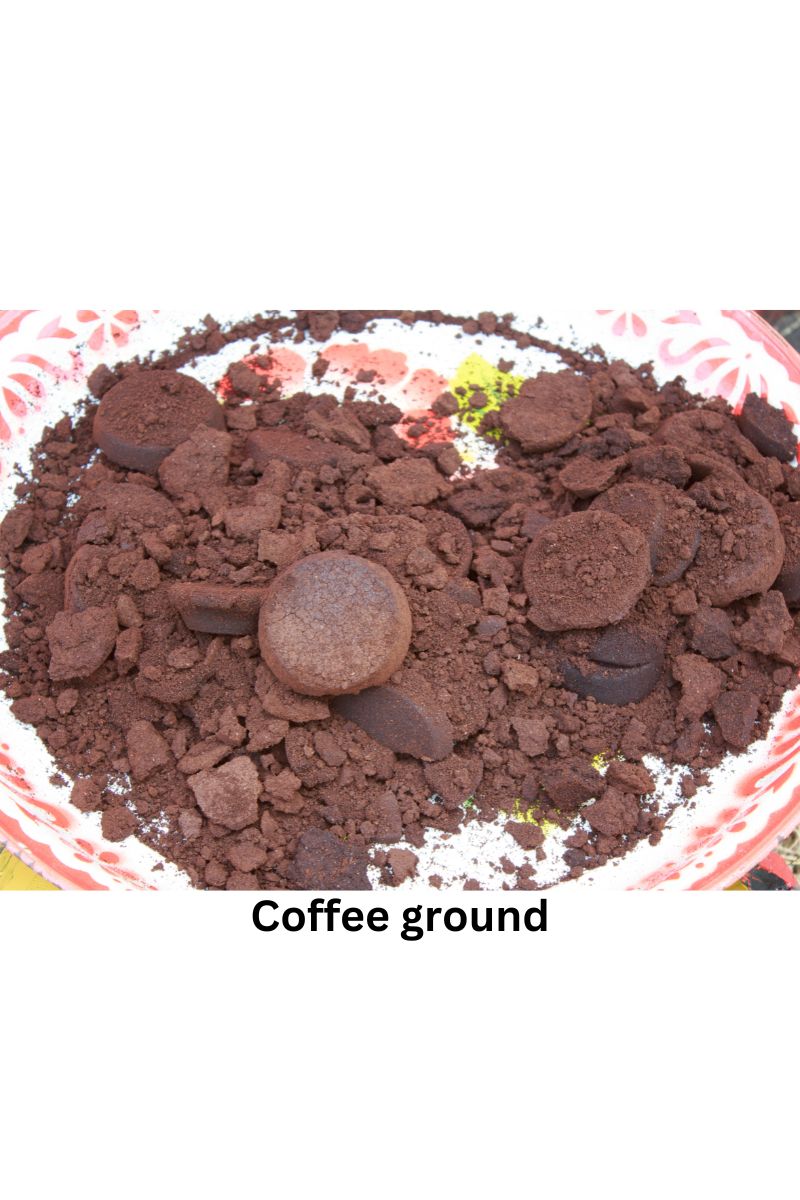In the world of gardening, there are countless ways to nurture your plants and promote a thriving garden. One often-overlooked resource that holds tremendous potential is moldy coffee grounds. Instead of tossing out those coffee grounds that have seen better days, consider repurposing them in your garden.
In this blog post, Using moldy coffee grounds in the garden. we will explore the benefits of using moldy coffee grounds as a sustainable and eco-friendly solution for enhancing your garden’s health and vitality.
Understanding Moldy Coffee Grounds
Before we dive into the various ways you can use moldy coffee grounds in your garden, let’s address a common concern: what causes coffee grounds to mold? Coffee grounds are rich in organic matter, making them a prime breeding ground for mold when exposed to moisture and air.
While the presence of mold on coffee grounds may not look appealing, it is not necessarily harmful to plants. In fact, the decomposition process initiated by mold can actually benefit your garden by breaking down organic matter and enriching the soil.
Nutritional Benefits of Moldy Coffee Grounds
Moldy coffee grounds may not look appetizing, but they are packed with nutrients that can benefit your plants. These nutrients include nitrogen, potassium, phosphorus, and trace minerals that are essential for plant growth.
When incorporated into the soil, moldy coffee grounds can help improve soil structure, promote healthy root development, and enhance overall plant vitality.
Using Moldy Coffee Grounds as Fertilizer
One of the primary ways to harness the power of moldy coffee grounds in your garden is to use them as a natural fertilizer. To incorporate coffee grounds into the soil, simply mix them into the top layer or sprinkle them around the base of your plants.
Avoid overdoing it, as excessive amounts of coffee grounds can alter the pH levels of the soil. By using moldy coffee grounds as fertilizer, you can provide your plants with a steady supply of nutrients to support their growth and productivity.
Soil Conditioning with Moldy Coffee Grounds
In addition to serving as a nutrient-rich fertilizer, moldy coffee grounds can also help condition the soil in your garden. The organic matter found in coffee grounds improves soil structure, enhances drainage, and promotes aeration. By adding coffee grounds to your soil, you can create a healthy and fertile environment for your plants to thrive.
Moldy Coffee Grounds as Pest Control
Beyond nourishing your plants, moldy coffee grounds can also serve as a natural deterrent for pests in your garden. The strong aroma of coffee grounds acts as a repellent for common pests such as slugs, snails, and ants.
Consider scattering coffee grounds around vulnerable plants or creating a barrier to protect them from unwanted visitors. Additionally, companion planting strategies involving coffee grounds can help ward off pests and promote plant health.
Composting Moldy Coffee Grounds
If you’re an avid composter, moldy coffee grounds can be a valuable addition to your compost pile. The organic matter in coffee grounds accelerates the composting process, helping break down other materials more efficiently.
By composting moldy coffee grounds along with kitchen scraps and yard waste, you can create nutrient-rich compost to feed your garden and reduce waste.
Creative Ways to Use Moldy Coffee Grounds
In addition to using moldy coffee grounds directly in the soil, there are creative ways to maximize their benefits in your garden.
One popular method is to make coffee ground “tea” by steeping used coffee grounds in water and using the liquid to water your plants. You can also incorporate coffee grounds into mulch or use them as a top dressing to enrich the soil and suppress weeds.
Tips for Collecting and Storing Moldy Coffee Grounds
To make the most of moldy coffee grounds in your garden, it’s essential to collect and store them properly. Store used coffee grounds in a breathable container to prevent further mold growth and maintain their freshness.
Consider collecting coffee grounds from local cafes or shops to supplement your own supply and reduce waste in your community.
Conclusion
In conclusion, moldy coffee grounds have untapped potential as a valuable resource for sustainable gardening practices.
By repurposing these often-discarded grounds in your garden, you can enrich the soil, nourish your plants, and promote a healthy ecosystem. So, the next time you brew a pot of coffee and find moldy grounds at the bottom of the filter, think twice before throwing them away. Embrace the power of moldy coffee grounds and watch your garden flourish in response to this eco-friendly alternative.
Can moldy coffee grounds be used in the garden?
Yes, moldy coffee grounds can be used in the garden. While it’s generally recommended to use fresh coffee grounds, moldy ones can still be used as a compost or fertilizer with caution.
How can I safely use moldy coffee grounds in the garden?
When using moldy coffee grounds in the garden, ensure they are mixed well with other materials in the compost pile or compost bin. This helps in speeding up the decomposition process and reducing the risk of any potential harm.
What nutrients do moldy coffee grounds provide to the plants?
Moldy coffee grounds can provide nitrogen, potassium, and other nutrients to the plants as they break down. These nutrients can help in improving germination and overall plant health.
Are moldy coffee grounds effective in repelling pests in the garden?
While moldy coffee grounds are not known to repel pests, they can still be beneficial for plants when used as a mulch or soil amendment. For pest control, consider using other methods like barriers or natural repellents.
Can moldy coffee grounds attract worms to the garden?
Yes, moldy coffee grounds can attract worms to the garden as they are rich in organic matter. Worms help in enhancing the soil quality by breaking down the coffee grounds and aerating the soil.
Is it safe to use moldy coffee grounds around plants directly?
It is generally recommended to avoid using moldy coffee grounds directly around plants. Instead, mix them well with other materials before incorporating them into the soil to minimize any potential risks.
Will moldy coffee grounds impact the pH of the garden soil?
Moldy coffee grounds are known to be acidic. Therefore, using them excessively may lower the pH of the soil over time. It’s essential to monitor the soil pH and adjust the amount of coffee grounds accordingly.


Leave a Reply